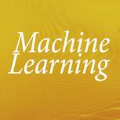We examine the disconnect between scholarship and practice in applying machine learning to trust and safety problems, using misinformation detection as a case study. We systematize literature on automated detection of misinformation across a corpus of 270 well-cited papers in the field. We then examine subsets of papers for data and code availability, design missteps, reproducibility, and generalizability. We find significant shortcomings in the literature that call into question claimed performance and practicality. Detection tasks are often meaningfully distinct from the challenges that online services actually face. Datasets and model evaluation are often non-representative of real-world contexts, and evaluation frequently is not independent of model training. Data and code availability is poor. Models do not generalize well to out-of-domain data. Based on these results, we offer recommendations for evaluating machine learning applications to trust and safety problems. Our aim is for future work to avoid the pitfalls that we identify.
翻译:暂无翻译



